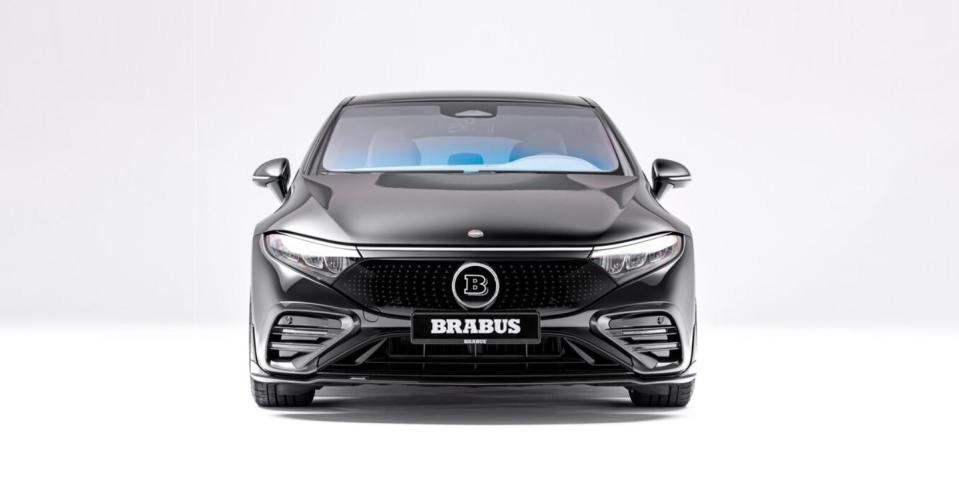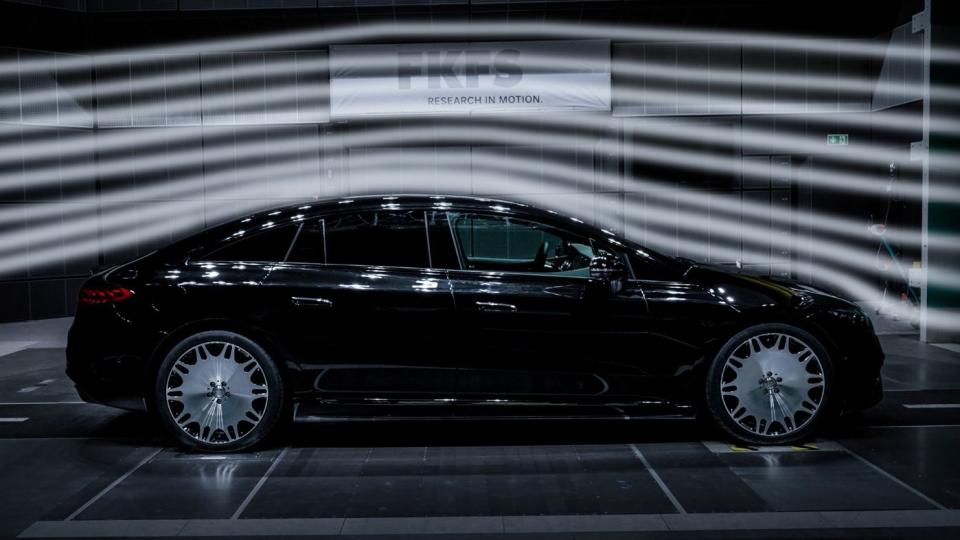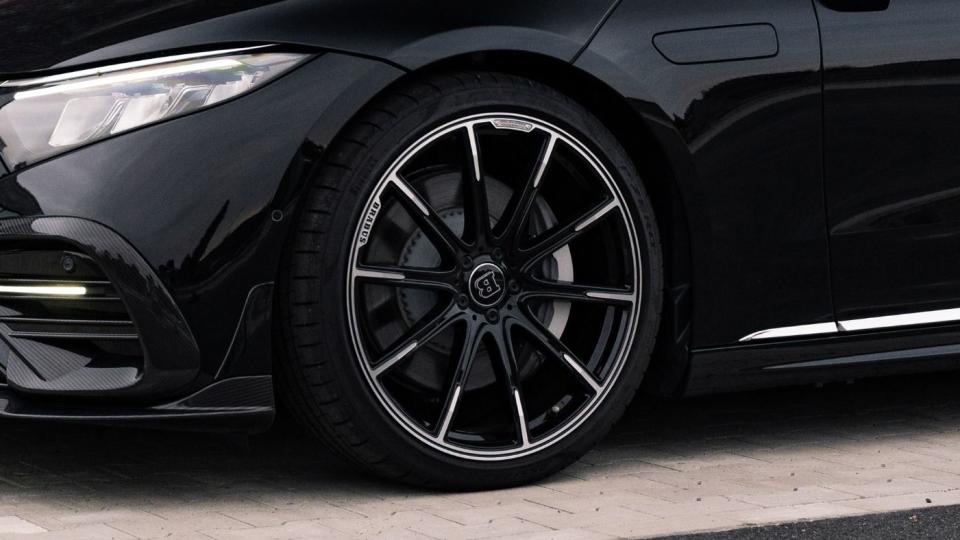Here’s What the Brabus EQS Electric Sedan Promises

Brabus reveals its own version of the electric Mercedes EQS flagship, with a new suspension module and aerodynamic improvements.
The tuning house says it has increased the range of the EQS sedan by improving its aerodynamic efficiency, but hasn't worked to increase its power.
AMG has already revealed its own version of the EQS that delivers more power, at the price of some range.
Even before the Mercedes-Benz EQS debuted, we knew it wouldn't be long before Germany's top tuning houses took a crack at transforming the electric luxury sedan into something that's almost over the top. Brabus, which made its name in the 1990s stuffing bored-out V8s into almost everything in Mercedes' lineup, obliged this month with the reveal of its own version of the EQS, delivering a surprise or two.
First, Brabus installed its own SportXtra suspension module, which allows the EQS to be lowered by .59 inches at the front and .98 inches at the rear, thereby lowering the center of gravity and improving dynamics. Second, Brabus added a front spoiler of its own design, with the carbon front lip working to minimize front axle lift. The tuning house also added a rear diffuser and a rear spoiler, while also giving the rear wheel arches carbon air deflectors.
The changes give the EQS a 40% reduction in aerodynamic lift, while improving its cD value of .209 by 7.2%. This is perhaps the first surprise.
Of course, Brabus has a deep catalog of wheel designs, and the EQS benefits from 22-inch Brabus Monoblock M forged wheels, finished in black. And we knew it wouldn't be getting out of Bottrop and on to the autobahn without gaining larger wheels in the process.
And now the second surprise.

There are no performance modifications beyond the suspension and aerodynamic tweaks. In effect, Brabus has improved the aerodynamics to squeeze out a little range, especially between 60 and 87 mph. If you've spent enough time around EVs, you know that highway speeds are where they are typically less efficient. But Brabus claims a 7% improvement in range exactly in this sweet spot of traveling speed, which is no small achievement for a car that was already supposed to be aerodynamically optimized.
Finding an extra 7% of range at highway speeds just lying around is surprising indeed, to the point of us now wondering just how much aero efficiency Mercedes itself left on the table. Sure, there are perhaps a few more tweaks that Brabus could have introduced to improve the cD even further, such as tapered wheel arches and winglet video mirrors, but one of them would change the looks of the car for the worse, while the other isn't approved in all markets (but probably will happen eventually).

In addition, Brabus didn't go overboard with carbon-fiber components, so there are perhaps a few dozen pounds that could be shaved off with a more optimized interior, before we start getting into hypermiling territory. But a Brabus car also has to be luxurious, which is perhaps why the tuning house didn't go in that direction.
Of course, we might see a Brabus EQS with more power in the future, as in-house tuner AMG has already cooked up its own version of the EQS sedan. Just when will we see a Brabus EQS with more power? That's likely to happen when Brabus uses the Mercedes-AMG EQS as a starting point, rather than the EQS 450 sedan. But there's bound to be a negative impact on range.
Will electric sedans modified by traditional tuning houses such as Brabus remain as popular in Europe in the EV era? Let us know in the comments below.

 Yahoo Autos
Yahoo Autos 